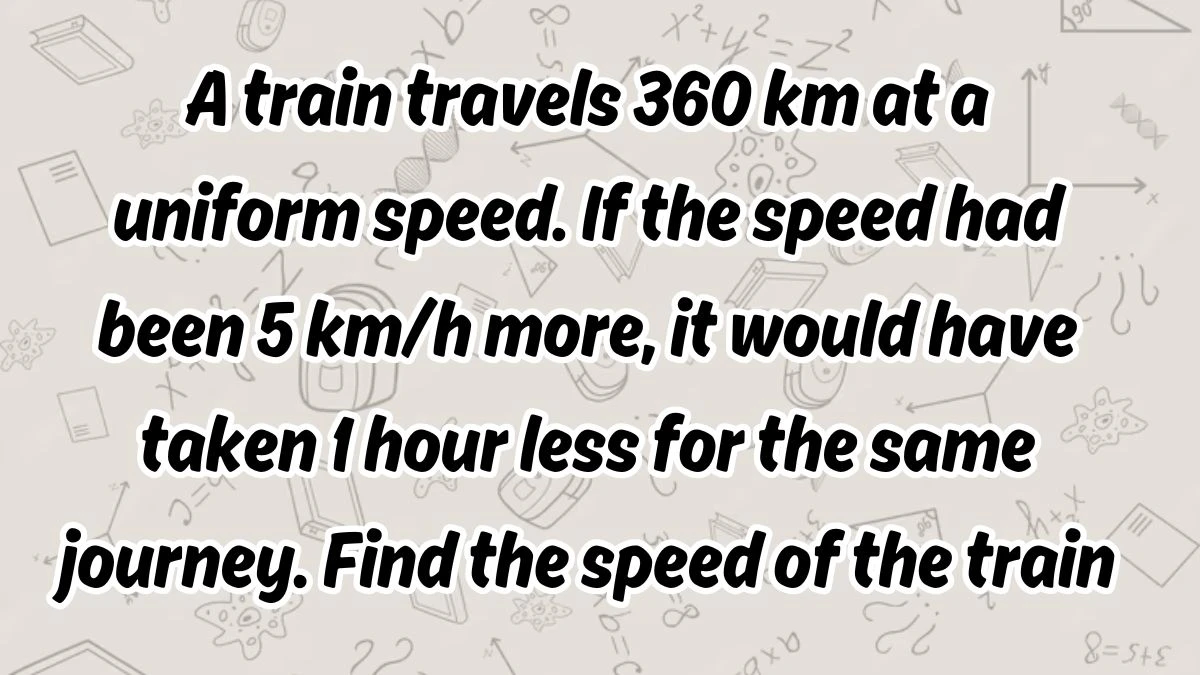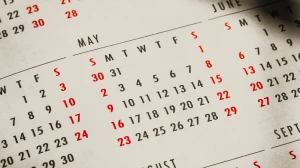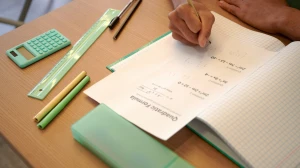A train travels 360 km at a uniform speed. If the speed had been 5 km/h more, it would have taken 1 hour less for the same journey. Find the speed of the train
by
Updated Jun 11, 2024

A train travels 360 km at a uniform speed. If the speed had been 5 km/h more, it would have taken 1 hour less for the same journey. Find the speed of the train
To solve this problem, which involves finding the speed of a train that travels 360 km at a uniform speed and comparing it with a hypothetical speed increase scenario, we can follow these steps.
Distance Traveled = 360 km
If the speed were 5 km/h more, the train would take 1 hour less for the same journey.
Let's assume the speed of the train is x km/hr.
Time taken at speed x = 360/x hours
Time taken at speed x+5 = 360/x+5 hours
According to the problem, the difference in time taken is 1 hour less:
360/x - 360/x+5 = 1
To solve the equation,
360(x+5) - 360x = x(x+5)
Simplify the equation:
(x+45)(x-40) = 0
Therefore x = 40, -45
The speed of the train is 40 km/hr.
Speed and Time Relationships
Understanding the relationship between speed, distance, and time is crucial in solving motion problems in mathematics. This concept is fundamental and has various applications in real life, from planning travel to understanding the dynamics of moving objects.
Speed:
- Speed is the rate at which an object covers a distance. It is usually measured in units such as kilometers per hour (km/h) or meters per second (m/s).
- Speed = Distance / Time
Distance:
- Distance is the total length of the path traveled by an object. It is typically measured in units like kilometers (km) or meters (m).
- Distance = Speed × Time
Time:
- Time is the duration taken by an object to travel a certain distance. It is generally measured in units like hours (h) or seconds (s).
- Time = Distance / Speed
Steps to Solve
- Read the problem carefully to determine what is given, such as distance, speed, or time.
- Note any changes or conditions, such as increased speed or decreased time.
- Use the relevant formula to set up an equation based on the given information.
- If there are changes in speed or time, set up a comparison to establish the relationship between the two scenarios.
- Simplify the equation to solve for the unknown variable.
- Ensure all units are consistent (e.g., all speeds in km/h and all times in hours).
- Check your solution by substituting it back into the original conditions to see if it satisfies the problem.




